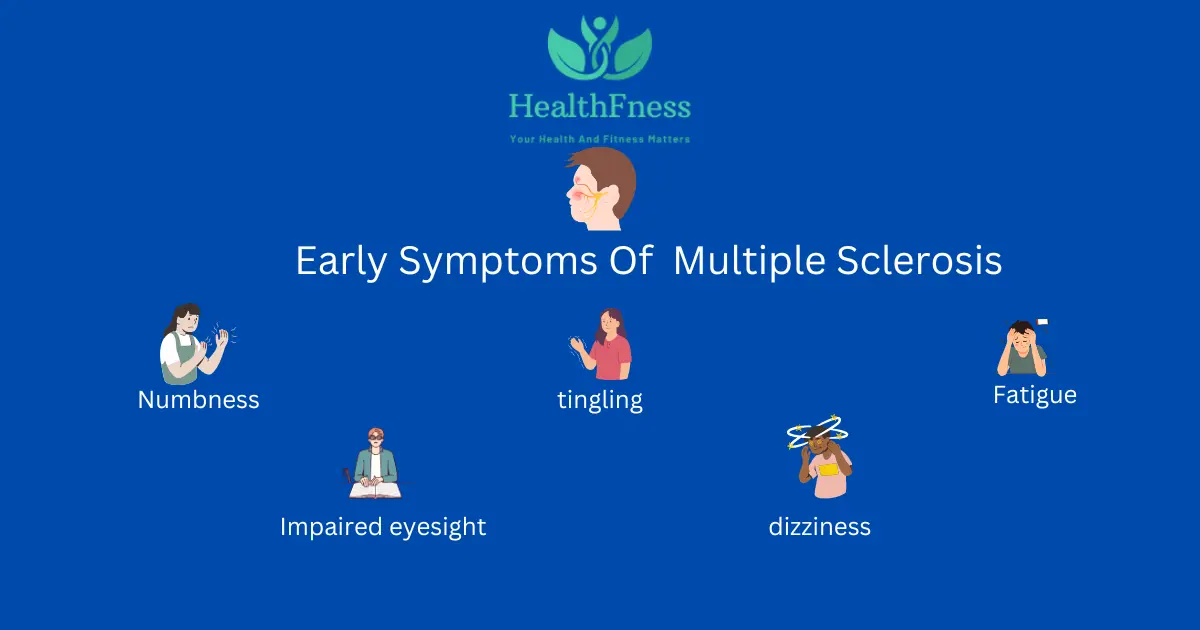The central nervous system (CNS) is affected by a neurological condition known as Multiple Sclerosis (MS), which can be permanently debilitating. Communication issues between the brain and the rest of the body result from the immune system incorrectly or for some reason attacking the protective covering of nerve fibers in this illness. People with MS may consequently experience a variety of physical and mental symptoms which affects their quality of life badly.
Understanding Multiple Sclerosis
Being an autoimmune disorder, multiple sclerosis causes the immune system of the body, which normally protects against outside invaders, to begin attacking its tissues. In simple words, we can say our immune system whose duty is to protect us start destroying our healthy protecting covering of nerve fiber. Myelin sheath, a protective layer that surrounds nerve fibers, is the target of the immune system in MS, which causes inflammation and damage.
Living with an autoimmune disease means embracing the unpredictable, and finding beauty in the midst of uncertainty.
Multiple Sclerosis ICD 10
Multiple Sclerosis is designated as G35 in the International Classification of Diseases, 10th Revision (ICD-10). Healthcare practitioners and medical coders use this code to recognize and categorize Multiple Sclerosis cases in medical records and billing systems.
Prevalence and Impact
Millions of people worldwide are afflicted by MS, a common neurological condition. Young individuals are most frequently diagnosed with it, and women are more likely than males to get MS. MS can have a significant negative influence on a person’s mobility, cognition, and emotional health, among other elements of their life.
Living with MS means rewriting the definition of strength and resilience every day.
If you want to cure your diseases naturally then read this full article you will find solutions to all your health problems: Why Natural Remedies Are the Real Deal: Goodbye to Chemical Medications
Types of MS
There are various forms of MS, and each has a unique course and set of symptoms.
- Progressive-Relapsing MS (PRMS)
- Secondary Progressive MS (SPMS),
- Relapsing-Remitting MS (RRMS)
- Primary Progressive MS (PPMS)
are the four main kinds.
Symptoms of Multiple Sclerosis
Early Symptoms
MS can manifest in its early stages in a variety of ways and with varying subtlety. Fatigue, tingling or numbness in the extremities, impaired eyesight, and dizziness are typical early signs. At first, these symptoms could come and go, making diagnosis difficult.
Advanced Symptoms
As MS worsens, more severe symptoms such as muscle weakness, gait difficulties, loss of coordination, and issues speaking and swallowing may appear. Individuals may occasionally develop cognitive impairments, memory issues, and mood swings.
Causes and Risk Factors Of Multiple Sclerosis
Autoimmune Factors
Although the precise cause of MS is unknown, scientists think that a mix of genetic predisposition and environmental triggers likely plays a substantial influence. The development of MS is believed to be heavily influenced by autoimmune variables.
Environmental Factors
The likelihood of getting MS has been linked to a number of environmental variables, including smoking, vitamin D deficiency, and exposure to specific viruses or illnesses.
Genetic Factors
The probability of acquiring MS is increased by a family history of the disease. An individual’s susceptibility to MS may be influenced by particular genes.
Diagnosis of Multiple Sclerosis
Medical History and Physical Examination
The first steps in diagnosing MS are a complete medical history and physical exam. The doctor might ask about your symptoms, your family history, and any past medical issues.
MRI and Other Imaging Tests
Magnetic resonance imaging, or MRI, is an essential tool for making a diagnosis of MS. By making the brain and spinal cord more visible, lesions or other myelin sheath damage can be found.
Lumbar Puncture
The cerebrospinal fluid from the spinal canal is drawn during a lumbar puncture, sometimes referred to as a spinal tap. This fluid can be examined to find any abnormalities linked to MS.
Blood Tests
Blood tests are performed to rule out other illnesses that present with comparable symptoms and to look for specific biomarkers linked to MS.
Multiple Sclerosis Treatment
Disease-Modifying Therapies
The goal of disease-modifying treatments is to lessen the number and severity of MS relapses. These drugs can protect brain function and reduce the disease’s progression.
Symptomatic Treatment
The goal of symptomatic treatment is to enhance the patient’s quality of life by addressing particular MS symptoms such as muscle spasms, pain, and bladder issues.
Physical and Occupational Therapy
Occupational and physical therapy are crucial parts of managing MS. They can aid with issues of daily living while also preserving or enhancing mobility, balance, and strength.
Lifestyle Changes
The general health of people with MS can be improved by leading a healthy lifestyle that includes frequent exercise, a balanced diet, and stress reduction.
Living with Multiple Sclerosis
Managing Symptoms
Learning to successfully manage symptoms is a necessary part of living with MS. This might entail quick medical advice seeking, medication adherence, and the use of mobility assistance as required.

Emotional and Psychological Support
Mental health may suffer as a result of MS. People who struggle with the emotional effects of the disease can cope by having a strong support system and obtaining expert counseling.
Maintaining Quality of Life
Despite the difficulties that MS can bring, many sufferers enjoy fulfilling lives. Maintaining social connections, pursuing interests, and engaging in hobbies can all improve general well-being.
Myths and Misconceptions about MS
Debunking Common Myths
There are numerous myths and misunderstandings about MS. To promote better comprehension and support for people with the disease, it is crucial to clear up these misconceptions.
Educating the Public
Increasing public knowledge and understanding of MS can assist to lessen stigma and encourage inclusivity for persons who have the condition.
Research and Advancements
Ongoing Studies
To comprehend MS better and create more potent treatment choices, ongoing research is being done. Clinical trial participation can aid in these developments.
Potential Breakthroughs
Recent scientific advancements have offered encouraging insights into prospective treatments for MS and ways to enhance the lives of those who are affected.
Supporting MS Awareness
Advocacy and Fundraising
Supporting MS research, patient treatment, and community services requires advocacy work and fundraising campaigns.
Supporting MS Organizations
The multiple sclerosis community is supported by a variety of organizations that offer invaluable tools and support to individuals who are afflicted.
Multiple Sclerosis Life Expectancy
Because it differs widely from person to person, the life expectancy of those with Multiple Sclerosis (MS) is not established or does not have a sure short answer. Individual differences in illness progression, severity, and therapy response are considerable. Many MS sufferers enjoy full lives and have life expectancies that are close to normal.
It’s important to remember that improvements in medical therapies and better management techniques have considerably improved the outlook for MS patients. Therapies that delay the advancement of the disease, lower the risk of relapses, and enhance the overall quality of life are available, as are methods for managing symptoms.
FAQS
What are the early symptoms of Multiple Sclerosis?
The mild early signs of MS can include tiredness, tingling or numbness in the limbs, impaired vision, and vertigo.
How is Multiple Sclerosis diagnosed?
MRI, lumbar puncture, blood tests, medical history, and physical examination are all used in the diagnosis of MS.
Is Multiple Sclerosis hereditary?
Even though having a family history of MS may make you more likely to get MS, there are other factors at play besides just genetics.
Conclusion
In conclusion, Multiple Sclerosis is a complicated neurological disorder that has a big effect on the people who have it. We can better support someone with MS if we are aware of the signs, the underlying problems, and the treatments that are out there. To create a more welcoming and helpful environment for people with MS, it is imperative to debunk misconceptions and increase knowledge. There is hope for better management and a higher quality of life for those who live with this condition because of continuous research and breakthroughs.
Video Credits:

